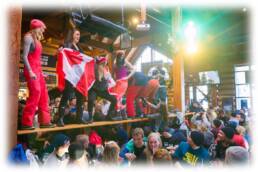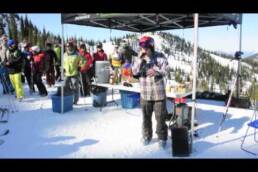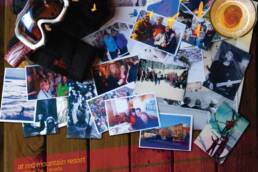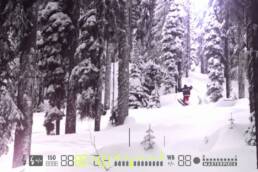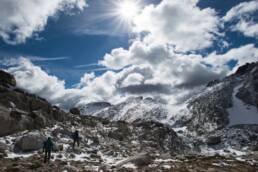What is it about high-spirited mountain life that encourages people to get high and drink spirits? Learning from her interview subjects and her own experiences, podcaster Emily Holland explains the physical and emotional ride of attaining sobriety in a culture awash with being sloshed. By Meghan J. Ward
It’s so pervasive that we don’t notice it. A ski day ends in a local pub with pints. Spirits are packed for the summit. Your group chat for the next hut trip includes “Who’s got the wine?” Often, it’s fun and harmless, but for those who have a problematic relationship with alcohol, finding a way out of unhealthy cycles can feel daunting when the outdoor industry uses booze to fuel good-time vibes.
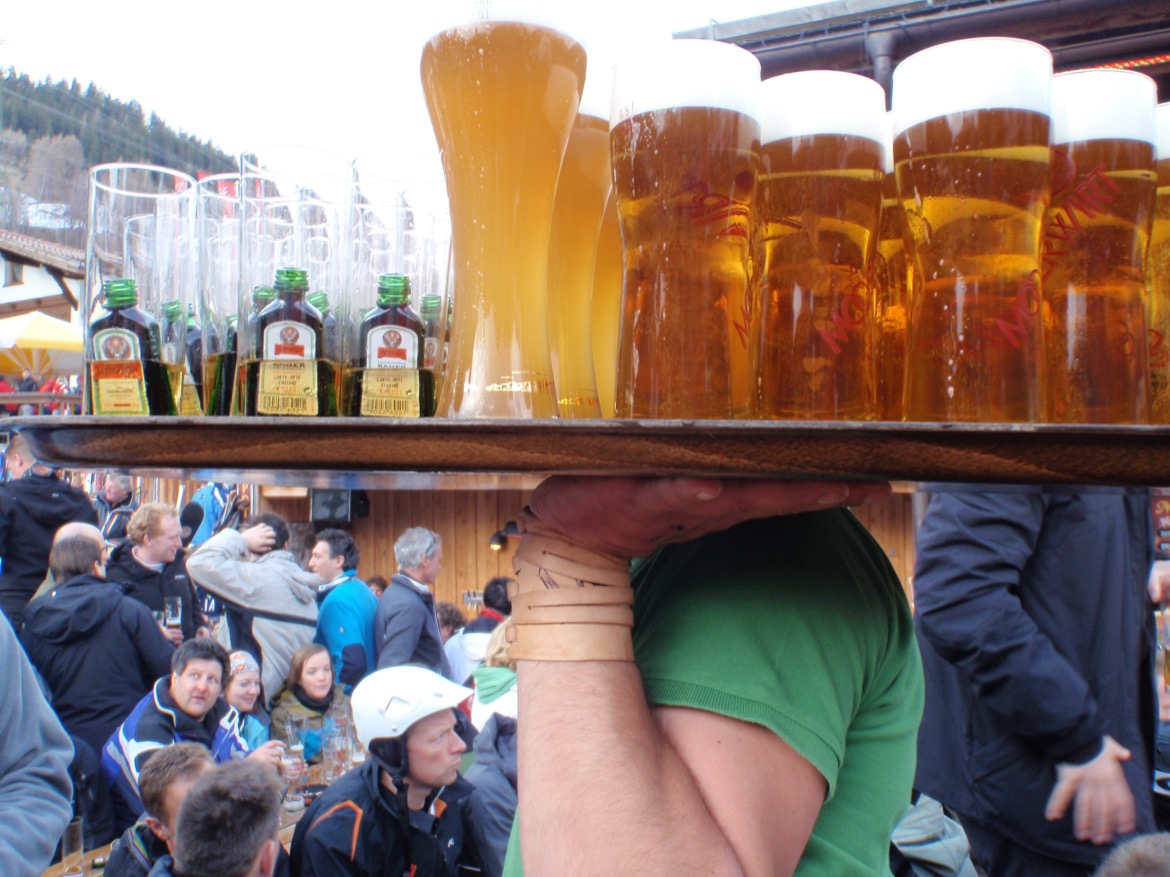
The prevalence of alcohol as an incentive and reward in mountain culture can make it seem normal. Yet, there is more to this issue than a Quaint Little Drinking Town with a Mountain Problem, as some kitschy T-shirts state. As Dr. Kristen Fuller writes in Psychology Today, “It is not normal or healthy to drink every day, despite what the popular ski-town culture is prophesizing.” The darker side of that culture can be insidious and convenient to ignore. The truth is that the potential for problems runs deep.
It is well-documented that mountain towns have high levels of substance abuse, depression, and other mental-health issues due to many factors, including the transient nature of the communities, the high cost of living, the stress of seasonal work, and, as researchers at the University of Utah have studied, a connection between lower oxygen levels and brain chemistry. When the Mental Health Commission of Canada reports that one in four deaths by suicide involve alcohol, people living out the party scene at elevation should take notice—if not for themselves, then for those around them. The good news is the no-alcohol industry is booming. According to NielsenIQ and reported on forbes.com, non-alcoholic drink sales were up 33.2 per cent from October 2020 to October 2021. From artisanal products to fruit-flavoured carbonated water, the surge of “non-alcs,” as they are called, is not only giving people more options, it’s flipping the script away from the idea that drinking alcohol is better. NielsenIQ also reported that 78 per cent of non-alc beverage buyers are purchasing alcoholic drinks as well, which may mean people are pushing for a healthier lifestyle and recognizing that moderation is an essential piece of that.
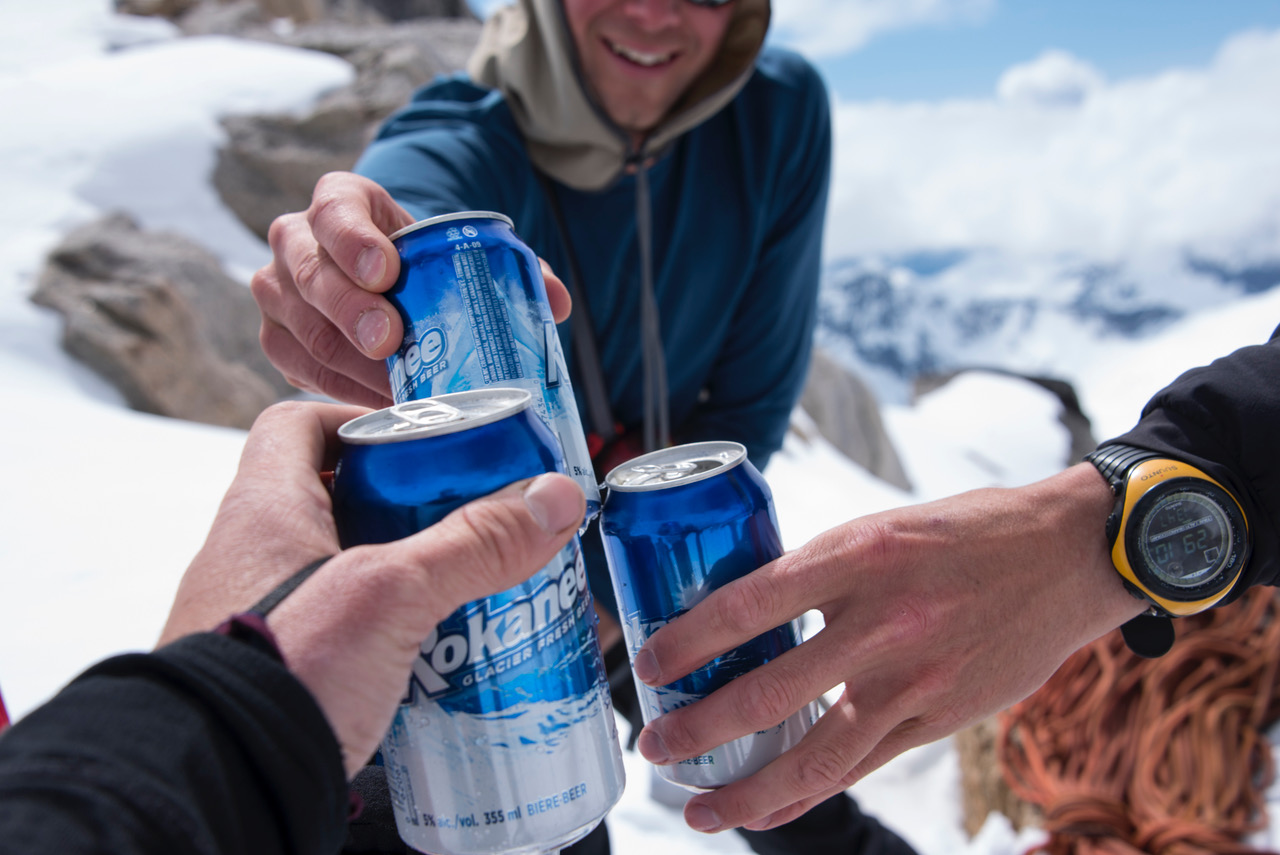
Emily Holland, a freelance podcast consultant, copywriter, editor, and outdoor enthusiast based in Boulder, Colorado, gave up alcohol in February 2020. Since then, she has been keenly observing the outdoor industry as it relates to alcohol and other addictive forces. At the outset of her sobriety, Holland, 31, sought help from resources such as books and podcasts, but she ultimately discovered an information gap. “I really wasn’t finding a place in the outdoor community that was telling consistent stories of sobriety, addiction, and recovery in the way that I thought was sorely needed,” she says. A seasoned podcaster, Holland took her experience from hosting The Stokecast, a podcast about outdoor enthusiasts and entrepreneurs, and created the Nature Untold Podcast, an interview-style show that explores various types of addictions and sobriety. Her hope was that it would guide her journey and help listeners along the way.
For the podcast, Holland has hosted 25 conversations with people around the United States, including recognizable names, such as adventurer and writer Brendan Leonard of semi-rad.com. In the process, she has gained valuable insights into the complicated relationship that the outdoor community has with alcohol, the importance of connection, and how the industry can give equal space to those who aren’t up for a buzz.
Meghan J. Ward: What was your introduction to the outdoors? Which outdoor activities or pursuits are you most active in now?
Emily Holland: I grew up in upstate New York in a town called Ballston Spa. My introduction to the outdoors was really the fact that we lived on a Christmas tree farm, and my sisters and I were the workers on the farm—very much in the dirt, planting trees, taking care of them, and fertilizing them. I wasn’t immediately introduced to big-mountain adventures, but I was introduced to growing and sustaining the natural world early on. Nowadays, trail running, climbing, skiing, and hiking would probably be my main activities. Camping is a big part of all of those.
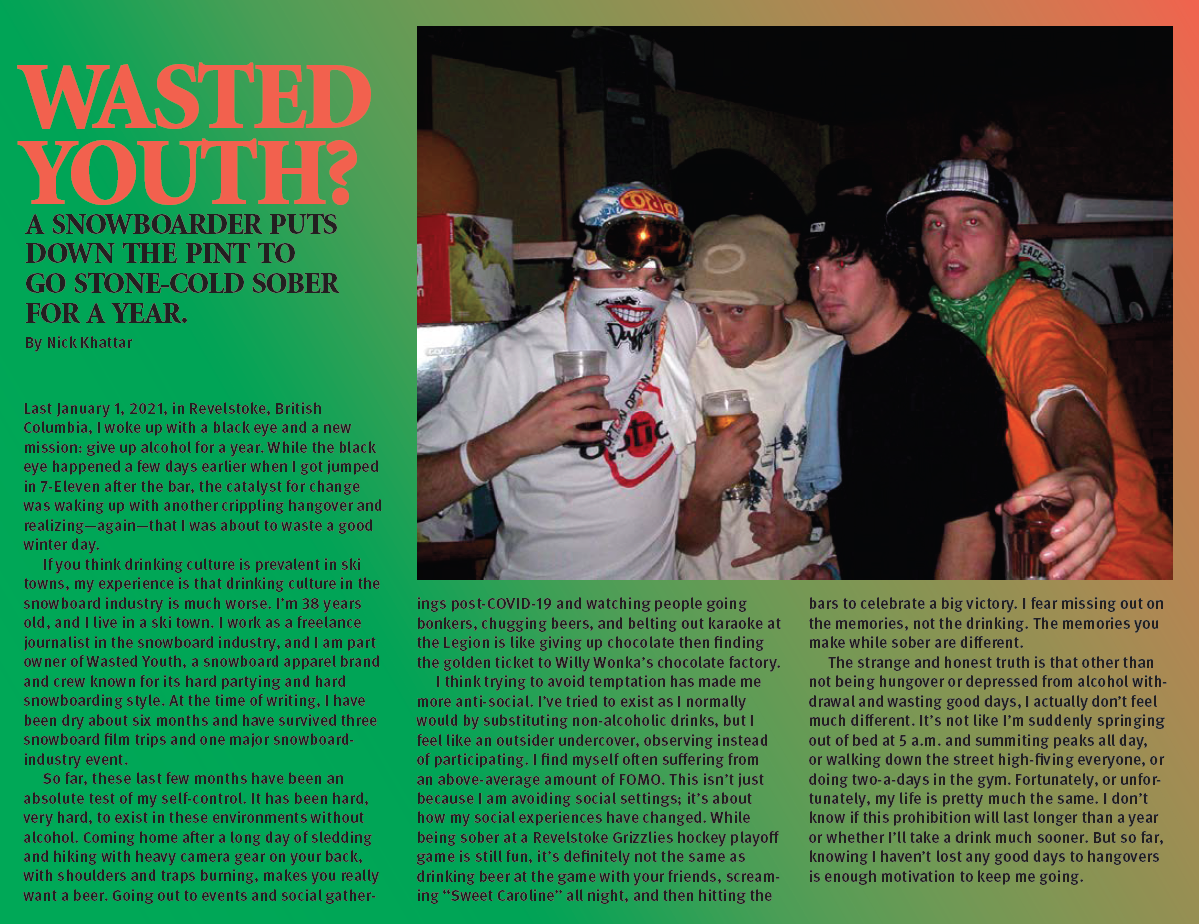
In the trailer for your Nature Untold Podcast, you describe your developing relationship with alcohol. Can you recall how it started for you?
I started drinking when I was 14. I immediately realized it allowed me to be a person that I wanted to be—more gregarious or more flirtatious or a little bit more risqué, even—and to feel very cool. I would say that all of that is numbing of the authentic self, so I think, from the very beginning of me drinking, it really was about me numbing the parts of myself that I didn’t think would fit into the culture that I was in.
When do you think you recognized alcohol was a problem for you?
There were a couple of times when I first started dating my partner that I was either browning out, like missing parts of the evening, or blacking out entirely. And the scary thing—and maybe the realization that this was the beginning of the end for me with alcohol—was that the next day, he would say that he didn’t notice I was drunk. People around me who knew me pretty well couldn’t tell when I was drunk. That scared me a lot. Because I knew that the person I was when I was drunk and the person I was when I was sober were incongruous. The thing I used to fit in was the thing that made me feel very separate from everyone else around me. I wasn’t ready to give it up at that time, but I was a bit more curious than I had ever been before.
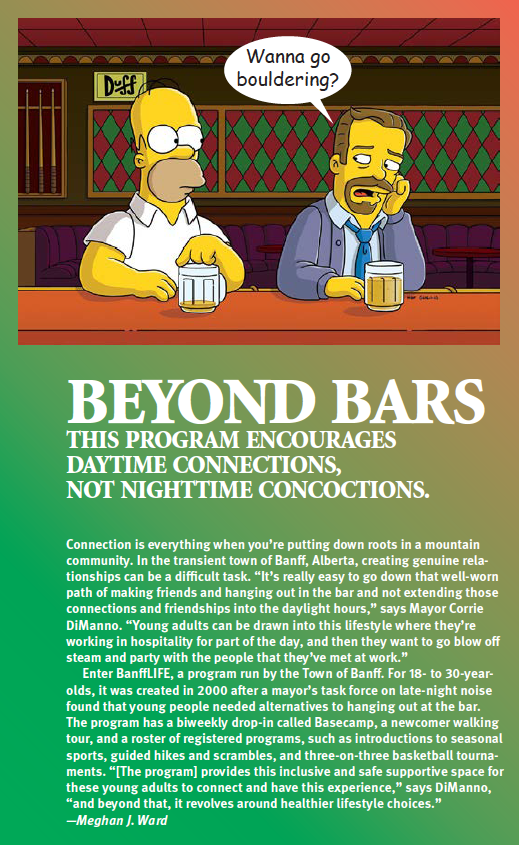
What role did the outdoors play for you as you started to get curious about your relationship with alcohol?
I think it became a place where I could really tap into that authentic self that I felt like I was pushing down for years and years. I think I was coming back to a sort of childhood joy I had camping with my family and going on hikes, the sort of moments I felt as a kid before I wanted to fit in—and before I felt the sadness or disconnection in high school that a lot of people feel. I often say when I’m hiking or doing something hard, “I love that feeling of burning in those muscles.” I love that because I drank my way from 14 to, at that point, my mid-twenties. I was always hungover, and I didn’t have the energy to go do these things as much, and so it was good to feel like I was in my body again, like I was embodying who I was supposed to be.
That was something Spencer Harkins talked about in episode 29, that when you stop drinking early, you can actually get up in the morning to do something fun. I can imagine it’s hard to get out of that cycle at first.
Definitely, and a lot of people fear getting out of the cycle . . . and their brain chemistry has changed from, usually, years of alcohol use, so it’s habitual as well. Your brain pathways have told you that if you do X—say, you go for the bike ride—you drink the beers, and you keep drinking them until you go to bed. It’s really hard for people to separate those two, and understandably [so], because their brain is telling them that one goes with the other.
In your inaugural episode of the podcast, you talk about your dry January in 2020 and a shift you felt after a drink on February 1. Can you talk more about this?
I think the real reason I was able to even notice the shift is because I had gone back to therapy and done some powerful work in the six months leading up to the dry January. I felt much more conscious and self-aware of my reactions to things and what my mind was telling me versus what my body was telling me. One of the main things I was working on in therapy was not to have such an emotional overreaction. I have had traumatic experiences in my past, and they make your brain do crazy things when there’s no threat in your immediate vicinity. On February 1, when I had a hard seltzer, I immediately felt very reactionary to everything around me, and I also really didn’t like the loss of motor function either. There was this really clear self-awareness of, “Oh, this is truly not for me anymore.” I felt like if I didn’t make a serious change, I would just be going in circles trying to fix myself or grow through therapy and that none of it would stick because I would have this thing that was bringing me back to regression. It was too obvious to ignore anymore.
We go outside to feel alive. But it’s really hard to feel that entirely if, either during or after, you’re numbing yourself from the total experience.
You hosted 25 episodes of the Nature Untold Podcast. What major themes emerged through your interviews?
The major one is that connection is the key to everything. That can be connection to nature and the world around us; it can be connection to other people, family, partners. Almost every single person that’s been on the podcast has a background of feeling like they were very disconnected from the world around them. Another theme is that nature is healing, but it will not heal you alone. You can’t just go out into the woods and then be healed of everything that ails you. That’s pretty consistent in the interviews I’ve done. It’s really about the outdoors being a vessel to embrace an understanding of yourself but also about connecting with others in those spaces.
Was there a specific interview that stuck with you?
I could pull one from every single episode, but there was one with Jon Totten, who runs a non-profit called Dogsmile Adventures. He takes folks who couldn’t otherwise afford it on sailing adventures. He actually did the interview from a sailboat. One of the things he said when he talked about stopping drinking is that he felt like he had an extra gear on his bike going uphill. I really like that visual. When you take something like [drinking] out of your life, there’s more gears to be had. There’s more clarity.
I’ve noticed there’s a Catch-22 at play. It’s no secret the outdoor industry encourages drinking. But outdoor experiences also offer a healthier outlet than, say, substances when it comes to dealing with our mental health. It’s as though the industry is exacerbating the issue while also being a solution. Do you have any thoughts about this?
I have a lot of thoughts about the industry perpetuating terrible things about drinking, but it is a nuanced discussion. I think it’s hard for someone who hasn’t done the internal work to see that delineation—that you don’t have to drink to be part of the outdoor community. But going back to your question, I think it’s really problematic that at the biggest outdoor-industry events of the year, there are happy hours that start at 2 p.m. I think it is also counter-intuitive to the outdoor sports we do. We go outside to feel alive. But it’s really hard to feel that entirely if, either during or after, you’re numbing yourself from the total experience. You’re not letting the experience go all the way through your nervous system, and so I think it’s really robbing people of having the fullness of the experience outdoor companies market to us. I think the way that we’re marketed to as outdoor people has gotten better, but it still showcases this party vibe that is really detrimental to people who are trying to change their lifestyles and looking for reassurance in the media they consume.
The thing that I used to fit in was the thing that made me feel very separate from everyone else around me.
How do you think the outdoor industry could start to shift away from promoting alcohol in conjunction with mountain activities?
It doesn’t need to be that there’s no alcohol anywhere. I just think there needs to be equal amount of space for people who choose not to drink as well. If you’re going to exist in a mountain town as any kind of business or you’re going to run these huge events, you’ve got to have non-alcoholic options. And I don’t mean water. Have a tasty thing people are excited to drink and one that is equal to the amount of fun in the alcoholic drinks you’re serving. And if you’re running a booth, can you lure people to you without it being about alcohol? I implore people to get more creative than they’re currently being. It’ll be more enriching for you as a marketing person. And it will make more people feel safe, seen, and understood.
What’s one piece of wisdom from the podcast interviews that you’d like everyone to know?
It is hard to distill down, but I think it would be to show up for the people in your community like you’d like to be showed up for. If you are having a get-together after a long run at your house, have non-alcoholic options for people. If you’re in the rock-climbing community and you see someone who seems to be struggling, approach them or ask them how you can help be supportive in that. If you see something happen at a local crag or a ski mountain that you don’t think is okay, say something. I think just showing up for your community members is really important. You never really know what a small deed will do for someone.
You’re still a producer of the podcast, but you’ve passed the hosting mic to John Holdmeier. What’s the next thing for you?
In general, I am really excited about a couple of different projects I’m working on, including Plug Tone Audio, which will be the first outdoor podcast collective. And then I’m climbing Kilimanjaro this year. So, I’m pretty stoked on that
Meghan J. Ward is an author and adventurer based in Banff, Alberta.
Related Stories
Insane Mountain Beat Boxin’
We don't know who this guy is, or where he came from. He showed up at the Kootenay Coldsmoke PowderKeg Slopestyle last…
The Gathering at Red Mountain
This upcoming Easter weekend RED and POWDER Magazine are presenting the 2nd annual Gathering at RED. Come hang with…
The Gathering Returns to Red Mountain
Presented by Salomon, the Gathering at Red Mountain, an event of mountain photographers, filmmakers, and artists is…


